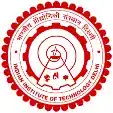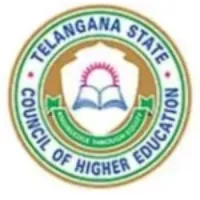Latest Applications Open 2024:
The IIT JAM Physics Syllabus for 2025 has been officially released by the organizing authority online. Students can access and download the syllabus in PDF format to aid in their preparation. Administered by IIT Delhi, IIT JAM 2025 is a national-level examination conducted under the Ministry of Human Resource Development (MHRD), Government of India.
It serves as the gateway for admission into various programs such as M.Sc. (four semesters), M.Sc.-Ph.D. dual degree, and others offered at IITs across the country.
It is held by the Ministry of Human Resources Development (MHRD), Government of India. IIT Delhi conducts the IIT JAM 2024 Exam. Students can download the IIT JAM 2025 Syllabus in PDF format. For better preparation, Candidates can also Download other Syllabus in PDF format.
IIT JAM 2025 Physics Syllabus – PDF Available
IIT JAM 2025 Physics Syllabus has been Available now. Click to Download IIT JAM Physics Syllabus PDF.
PHYSICS
Mathematical Methods: Calculus of single and multiple variables, partial derivatives, Jacobian, imperfect and perfect differentials, Taylor expansion, Fourier series. Vector algebra, Vector Calculus, Multiple integrals, Divergence theorem, Green’s theorem, Stokes’ theorem. First-order equations and linear second-order differential equations with constant coefficients. Matrices and determinants, Algebra of complex numbers.
Mechanics and General Properties of Matter: Newton’s laws of motion and applications, Velocity and acceleration in Cartesian, polar and cylindrical coordinate systems, uniformly rotating frame, centrifugal and Coriolis forces, Motion under a central force, Kepler’s laws, Gravitational Law and field, Conservative and non-conservative forces. The system of particles, the Center of mass, and the equation of motion of the CM.
Latest Applications For Various UG & PG Courses Open 2024
-
- Parul University | Admissions Open for All Courses 2024. Apply Now
- Chandigarh University | Admissions Open for All Courses 2024. Apply Now
- IIAD, Delhi | Admissions Open for All Courses 2024. Apply Now
- GIBS, Bangalore | PGDM Applications Open. Package upto 15.5 LPA. Apply Now
- GNIOT, Greater Noida | Admissions Open for All Courses 2023. Apply Now
- The Design Village | Admissions Open for All Courses 2024. Apply Now
- IMS Ghaziabad UC Campus | Admissions Open for All Courses 2024. Apply Now
- KIIT School of Management | Admissions Open for All Courses 2024. Apply Now
- KSRM | Admissions Open for All Courses 2024. Apply Now
- Jaipuria Institute of Management | Admissions Open for All Courses 2024. Apply Now
- NIIT | Admissions Open for All Courses 2024. Apply Now
- MITWPU | Admissions Open for All Courses 2024. Apply Now
- KL University | Admissions Open for All Courses 2024. Apply Now
- Alliance MBA | Admissions Open for All Courses 2024. Apply Now
- Alliance UG | Admissions Open for All Courses 2024. Apply Now
- GD Goenka | Admissions Open for All Courses 2024. Apply Now
Conservation of linear and angular momentum, energy conservation, and variable mass systems. Elastic and inelastic collisions. Rigid body motion, fixed axis rotations, rotation and translation, moments of Inertia and products of Inertia, parallel and perpendicular axes theorem. Principal moments and axes. Kinematics of moving fluids, an equation of continuity, Euler’s equation, Bernoulli’s theorem.
Oscillations, Waves, and Optics: A differential equation for the simple harmonic oscillator and its general solution. Superposition of two or more simple harmonic oscillators. Lissajous figures. Damped and forced oscillators, resonance. Wave equation, travelling and standing waves in one dimension. Energy density and energy transmission in waves. Group velocity and phase velocity.
Sound waves in media. Doppler Effect. Fermat’s Principle. The general theory of image formation. Thick lens, thin lens, and lens combinations. Interference of light, optical path retardation. Fraunhofer diffraction. Rayleigh criterion and resolving power. Diffraction Gratings. Polarization: linear, circular, and elliptic polarization. Double refraction and optical rotation.
Electricity and Magnetism: Coulomb’s law, Gauss’s law. Electric field and potential. Electrostatic boundary conditions, Solution of Laplace’s equation for simple cases. Conductors, capacitors, dielectrics, dielectric polarization, volume and surface charges, electrostatic energy. Biot-Savart law, Ampere’s law, Faraday’s law of electromagnetic induction, Self and mutual inductance.
Alternating currents. Simple DC and AC circuits with R, L, and C components. Displacement current, Maxwell’s equations, plane electromagnetic waves, Poynting’s theorem, reflection, refraction at a dielectric interface, transmission, and reflection coefficients (normal incidence only). Lorentz Force and motion of charged particles in electric and magnetic fields.
Kinetic theory, Thermodynamics: Elements of Kinetic theory of gases. Velocity distribution and Equipartition of energy. Specific heat of Mono-, di- and tri-atomic gases. Ideal gas, van-der-Waals gas, and equation of state. Mean free path. Laws of thermodynamics. Zeroth law and the concept of thermal equilibrium. First law and its consequences. Isothermal and adiabatic processes.
Reversible, irreversible, and quasi-static processes. Second law and entropy. Carnot cycle.Maxwell’s thermodynamic relations and simple applications. Thermodynamic potentials and their applications. Phase transitions and Clausius-Clapeyron equation. Ideas of ensembles, Maxwell-Boltzmann, Fermi-Dirac, and Bose-Einstein distributions.
Modern Physics: Inertial frames and Galilean invariance. Postulates of special relativity. Lorentz transformations. Length contraction, time dilation. Relativistic velocity addition theorem, mass-energy equivalence. Blackbody radiation, photoelectric effect, Compton effect, Bohr’s atomic model, X-rays. Wave-particle duality, Uncertainty principle, the superposition principle.
Calculation of expectation values, Schrödinger equation, and its solution for one, two, and three-dimensional boxes. A solution of the Schrödinger equation for the one-dimensional harmonic oscillator. Reflection and transmission at a step potential, Pauli exclusion principle. Structure of the atomic nucleus, mass, and binding energy. Radioactivity and its applications. Laws of radioactive decay.
Solid State Physics, Devices and Electronics: Crystal structure, Bravais lattices, and basis. Miller indices. X-ray diffraction and Bragg’s law; Intrinsic and extrinsic semiconductors, a variation of resistivity with temperature. Fermi level. p-n junction diode, I-V characteristics, Zener diode, and its applications, BJT: characteristics in CB, CE, CC modes. Single-stage amplifier, two-stage R-C coupled amplifiers.
Latest Applications For Various UG & PG Courses Open 2024
-
- Parul University | Admissions Open for All Courses 2024. Apply Now
- Chandigarh University | Admissions Open for All Courses 2024. Apply Now
- IIAD, Delhi | Admissions Open for All Courses 2024. Apply Now
- GIBS, Bangalore | PGDM Applications Open. Package upto 15.5 LPA. Apply Now
- GNIOT, Greater Noida | Admissions Open for All Courses 2023. Apply Now
- The Design Village | Admissions Open for All Courses 2024. Apply Now
- IMS Ghaziabad UC Campus | Admissions Open for All Courses 2024. Apply Now
- KIIT School of Management | Admissions Open for All Courses 2024. Apply Now
- KSRM | Admissions Open for All Courses 2024. Apply Now
- Jaipuria Institute of Management | Admissions Open for All Courses 2024. Apply Now
- NIIT | Admissions Open for All Courses 2024. Apply Now
- MITWPU | Admissions Open for All Courses 2024. Apply Now
- KL University | Admissions Open for All Courses 2024. Apply Now
- Alliance MBA | Admissions Open for All Courses 2024. Apply Now
- Alliance UG | Admissions Open for All Courses 2024. Apply Now
- GD Goenka | Admissions Open for All Courses 2024. Apply Now
Simple Oscillators: Barkhausen condition, sinusoidal oscillators. OPAMP and applications: Inverting and non-inverting amplifier. Boolean algebra: Binary number systems; conversion from one system to another system; binary addition and subtraction. Logic Gates AND, OR, NOT, NAND, NOR exclusive OR; Truth tables; a combination of gates; de Morgan’s theorem.
IIT JAM Physics Syllabus 2025 FAQs
What is IIT JAM?
IIT JAM (Joint Admission Test for M.Sc.) is a national-level entrance exam conducted for admission to M.Sc., M.Sc.-Ph.D. dual degree, and other postgraduate programs at IITs and IISc.
Who conducts the IIT JAM exam?
IIT JAM is conducted by one of the IITs on a rotational basis. For example, IIT Delhi, IIT Bombay, IIT Kanpur, etc., take turns organizing the exam each year.
What are the eligibility criteria for IIT JAM Physics?
Candidates must have a Bachelor’s degree with at least 55% aggregate marks (50% for SC/ST/PwD categories) or an equivalent CGPA. There is no age restriction.
How can I apply for IIT JAM Physics?
The application process is online. Candidates need to register on the website of IIT JAM, fill out the application form, upload the required documents, and pay the application fee.
What is the exam pattern for IIT JAM Physics?
IIT JAM Physics exam consists of multiple-choice questions (MCQs), multiple-select questions (MSQs), and numerical answer type (NAT) questions. The duration of the exam is 3 hours.
Is there a negative marking in IIT JAM Physics?
Yes, there is a negative marking for MCQs and MSQs. For MCQs, 1/3 mark is deducted for each wrong answer, and for MSQs, 2/3 mark is deducted for each wrong answer. There is no negative marking for NAT questions.
What topics should I prepare for IIT JAM Physics?
The syllabus includes Mathematical Methods, Mechanics and General Properties of Matter, Oscillations, Waves and Optics, Electricity and Magnetism, Kinetic Theory and Thermodynamics, Modern Physics, Solid State Physics, Devices and Electronics.
Can I use a calculator during the IIT JAM Physics exam?
No, calculators or any electronic devices are allowed in the exam hall. Candidates must perform calculations manually.
When does the IIT JAM Physics exam typically take place?
IIT JAM Physics exam is usually conducted in February each year. Candidates should check the official website for exact dates and updates.
How can I prepare effectively for IIT JAM Physics?
Prepare a study schedule, focus on understanding concepts deeply, practice previous years’ question papers, take mock tests, and revise regularly. Joining coaching classes or online study groups can also help in structured preparation.
If you have any other queries regarding IIT JAM Physics Syllabus 2025, you can ask us by commenting below.

As a dedicated Biology Science graduate, I’m passionate about sharing the latest updates in national and state entrance exams through my blog. I aim to keep aspiring students informed about exam trends, important dates, and changes in syllabi. With a keen interest in education, I strive to offer valuable insights for students navigating the competitive landscape of entrance examinations and admission tests. Stay updated with me.

